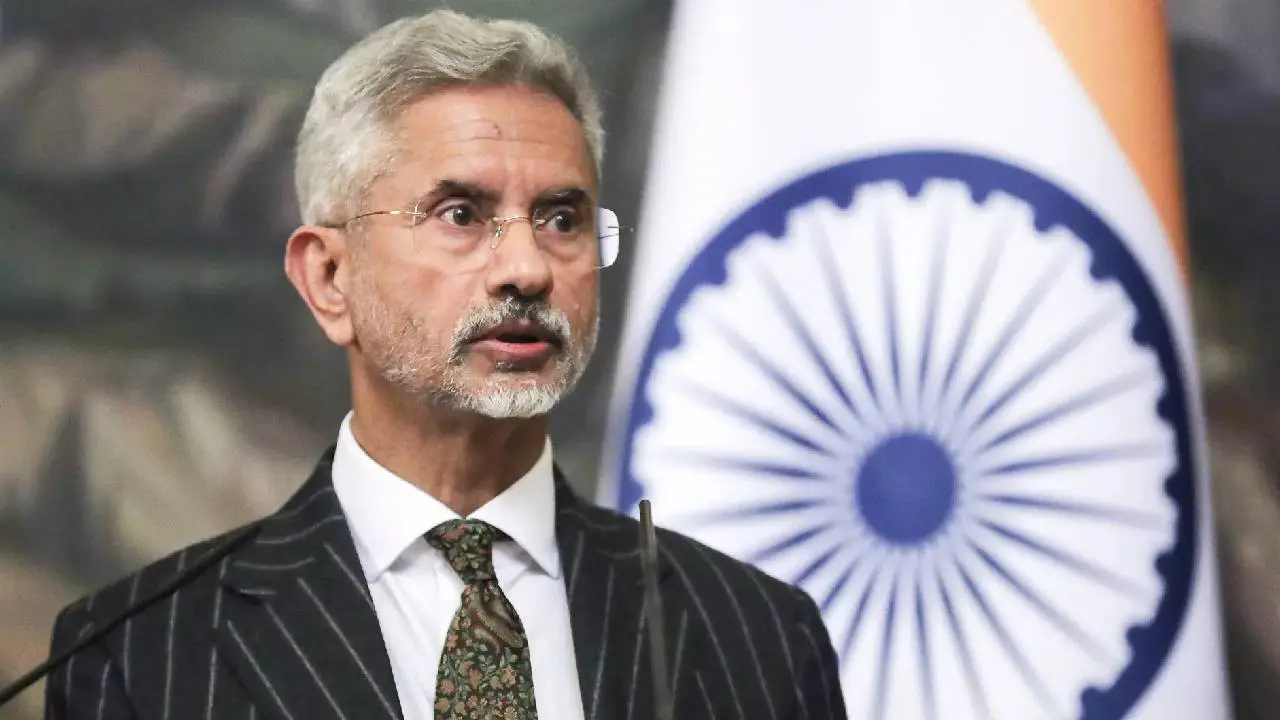
S. Jaishankar
Internatonal News: External Affairs Minister S. Jaishankar affirmed that India will engage with Russia and Iran based on its own national interests. He emphasized that India’s foreign policy is independent and not shaped by external pressures, including from the U.S. His statement highlights India’s commitment to strategic autonomy. The message signals India's rising confidence on the global diplomatic stage.
India's Foreign Minister S. Jaishankar recently asserted with considerable force that India possesses the diplomatic flexibility to talk to nations such as Russia and Iran, without being influenced by the pressures from the outside world, especially America. His statements reflect India's increasing diplomatic strength and its capacity to decide its own foreign policy course of action. Jaishankar also made it a point to say that India keeps its national interests first and foremost, and no country, not even the U.S. or any other, can tell India how it should conduct its foreign affairs. This remark yet again emphasizes India's own wish to have a balanced and independent foreign policy in the dynamic changing world geopolitics.
Jaishankar's remarks draw attention to India's adherence to an independent foreign policy unfettered by foreign interference. India's strategy has been to deal with a vast number of countries, regardless of their international alignments, on its own strategic basis. The foreign minister emphasized that India does not subscribe to the limited grouping of nations as 'friends' or 'enemies' on the basis of other nations' perceptions. By engaging with Russia and Iran, India is demonstrating its capacity to craft relationships on the basis of mutual interest and respect, instead of giving in to pressures that are normally applied by Western nations.
India has consistently promoted a "multi-vector" foreign policy, balancing its relations with different global powers and ensuring the security of its national security and economic interests. Although India has a robust relationship with the U.S., including on the trade, defense, and technology fronts, it has also continued its traditional relationship with Russia, particularly on the defense cooperation front. India's increasingly strong relationship with Iran over the past few years, especially on the energy and security fronts in the region, has been instrumental. Jaishankar's statements reiterated that India's foreign policy is pragmatically driven, and not driven by ideological alignments.India's relations with Russia are significant in view of the current geopolitical tensions in the Ukraine war. In spite of Western countries sanctioning Russia, India has not let its defense and energy ties with Moscow decline. Likewise, India's actions in Iran have been strategic, especially in energy security and regional stability in the Middle East and Afghanistan.
Jaishankar also clarified that India's role in being able to deal with Russia and Iran does not necessarily imply going against its relationship with the U.S. or other Western nations. India and the U.S. are aligned on common values of democracy and economic growth, but their foreign policy strategies do not always coincide, particularly when it comes to issues involving nations such as Russia and Iran. Jaishankar reiterated that India has robust relations with the West but also does not hesitate to be firm on its strategic interests when dealing with nations such as Russia and Iran, both of which are important players in India's security and hydrocarbon requirements. For America, India's ongoing interaction with Russia and Iran could be a bone of contention, particularly as Washington tries to isolate Moscow for its policy in Ukraine. Yet, India's diplomatic position, articulated by Jaishankar, demonstrates a pragmatic mind that attempts to balance several global relationships without sacrificing its sovereignty or strategic independence.
Jaishankar's remark is a reminder of India's growing global clout and its capacity to mold its foreign policy in line with its national interests, irrespective of international pressure. With the world trending toward greater multipolarity and nations like China and Russia exerting more influence in global geopolitics, India's role as an independent and neutral player is assuming a far more important role. With regional stability, economic development, and security at the forefront, India is maintaining its position as a significant global player. Jaishankar's remarks also capture the larger trend of Indian foreign policy under which India aims to diversify foreign diplomatic interactions and avoid over-reliance on any one nation. In its engagement with the U.S., Russia, or Iran, India's strategy will presumably remain committed to pragmatism, autonomy, and strategic vision, placing it as a leading power in the world order.





Copyright © 2026 Top Indian News
